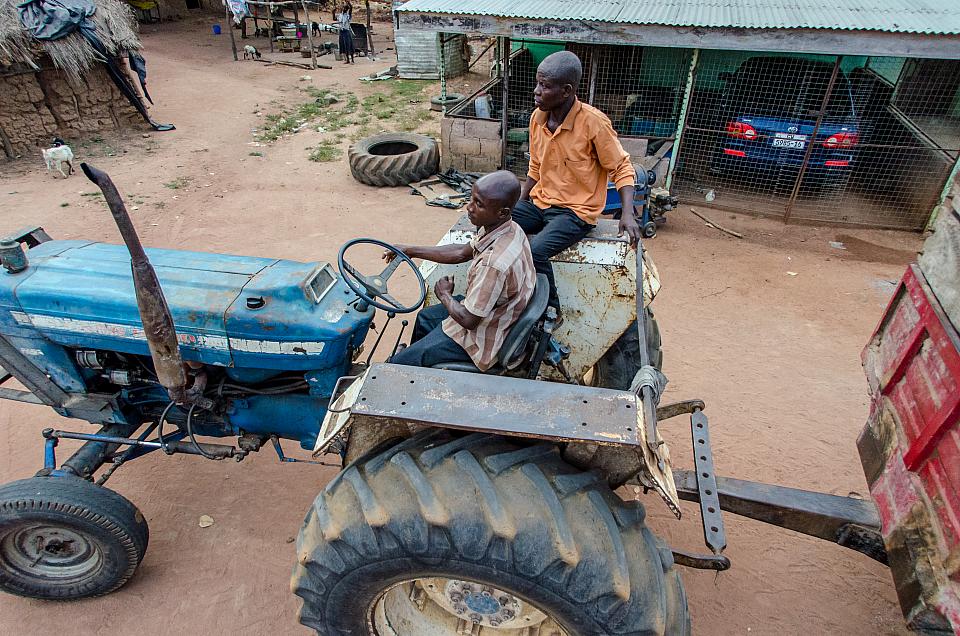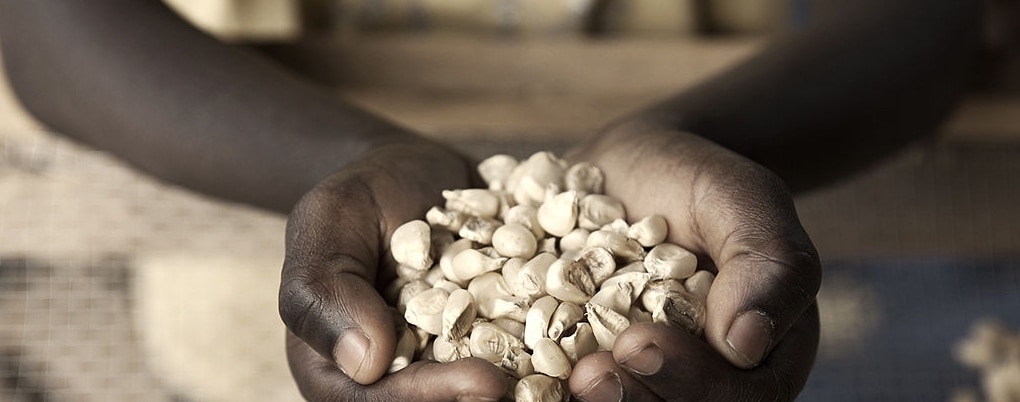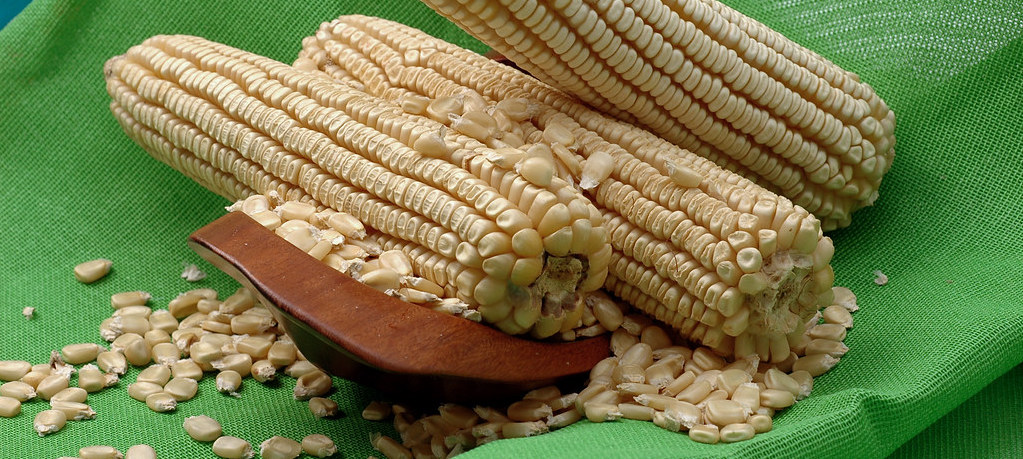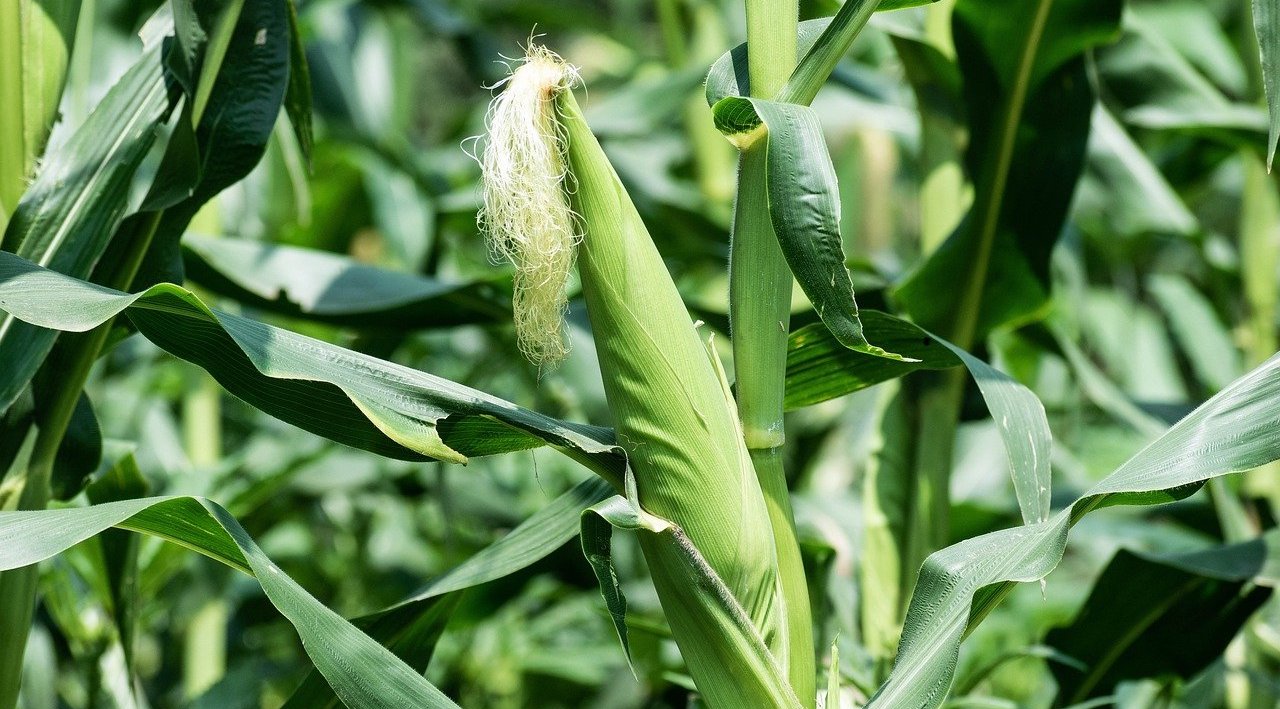Thrust into the role of breadwinner to support his mother and younger siblings following the demise of his father in 1998, Mboyo Johnson quit school to take charge of the family farms and a corn mill.
He remembers thinking at the time that this was not exactly how he had planned his life, but Johnson’s initial predicament transformed into his passion, and the success has seen him expand the business into large maize farms, livestock, a bigger corn mill, a new tractor, and a new house. Today he is arguably the wealthiest man in Forifori, a village in Ghana’s Eastern Region.
He recently learned of Planting for Food and Jobs, (PFJ), an initiative of the Ghana government to promote the use of improved seeds, prompting him to plant 30 acres of hybrid maize seed in the new season.
“When I planted the hybrid maize, I could see the stands, the yields and how big the cobs were,” he adds with conviction, “I will improve my harvest this year.”
As one of 11 countries under The Partnership for Inclusive Agricultural Transformation in Africa (PIATA), Ghana is on a quest to ensure all five million farmers have access to improved maize, rice sorghum, soya bean and vegetable seeds. PIATA is a five-year partnership led by AGRA, the Rockefeller Foundation and the Bill & Melinda Gates Foundation to catalyze and sustain an inclusive agricultural transformation in Africa.
Seed is the central factor in farmers’ lives, says AGRA Vice President, Programme Development and Innovation, Joe DeVries. “Seed gives farmers hope that the future can be better,” he adds. It provides the link to the continent’s potential for increasing incomes and improving food security for the 30 million smallholder farm households.
AGRA works with the private sector to develop new seed varieties that are sold to farmers through agro-dealer networks of private entrepreneurs as a strategy to increase incomes and improve the food security of farmer households.
However, two issues stand in the way of Africa’s agricultural turnaround. A fragmented agricultural industry built on rural smallholder farmers on the one hand, and the deprivation of resources and investments on the other hand, leading to the under-performance of the sector.
“You can pave the roads. You can bring in the fertilizer. You can open up the markets. You can even irrigate the land. But if farmers don’t have modern, high-yielding seed, they won’t have the incentive to use any of those other technologies, and yields will remain unchanged,” said DeVries at the fourth 10k Club Seed Convening, 2018 in Accra Ghana.
In DeVries’ words, the 10K Club is an audacious goal to challenge African seed companies supported by AGRA to achieve an annual production of 10,000 MT that will fill the demand for improved seed and trigger higher yields for farmers. Four AGRA-funded seed companies have since achieved the 10K Club status and cumulatively over 500,000 MT of seed was produced by over 85 small and medium sized African-based, AGRA grantees.
The 10K forum brings together representatives of private seed companies from 11 countries in Africa, Government, National Research Institutes, Donors, and CGIARS. These meetings share insights and trends centred on strategies to address early generation seed production, seed policies and seed support mechanisms including farmer awareness, regulation and protection, finance, ICT4Ag, markets and technologies.
In the two years since the inception of Planting for Food and Jobs initiative in Ghana, the outcomes have been exceptional.
“Everybody will tell you, they have never had so much food, so cheap,” enthuses Ghana’s Minster for Food and Agriculture, Dr Owusu Afriyie Akoto.
Just as communicating to farmers the opportunity to improve their lives and livelihoods through the adoption of improved seed, fertilizer, and other inputs unleashes demand at local levels, helping entrepreneurs and public officials to build systems that deliver high-quality inputs allows input markets to grow to scale.
Akosua Elizabeth is yet another farmer looking forward to a bumper harvest, despite a season of drought. She used to burn charcoal for a living before she was introduced to farming and the use of improved seed by the director of Complex Farms, Kwasi Amo.
“Farming is business,” he notes, “it enables small-scale farmers pay their children’s school fees, so it follows that they should desire a higher yield. That is why improved seed is very important in farming,” says Amo.
Elizabeth is looking forward to a bumper harvest despite a season of drought. “You can see that this one grows faster than the old one,” she says. “I know that when I harvest, I will get more compared to the previous year.” She intends to use the money from the surplus to upgrade her thatched roof with a more resilient material and to start a small shop.
Sulemana Yusif, a village-based advisor, also expects his life to change for the better after he and his colleagues in the Brong Ahafo Region of Ghana found what they describe as a ‘life changing’ maize variety. “If you plant and you get a bumper harvest why won’t your life change?” He poses.
Leveraging the full complement of tools, systems, knowledge, and partner resources within PIATA, Ghana stands to make strategic gains towards an inclusive agricultural transformation by increasing staple crop productivity, strengthened and expanded access to national and regional markets. With the increased capacity of smallholder farming, households like Johnson’s are adapting to improved agricultural systems making them better prepared for the inevitable shocks and stresses experienced by farmers.






